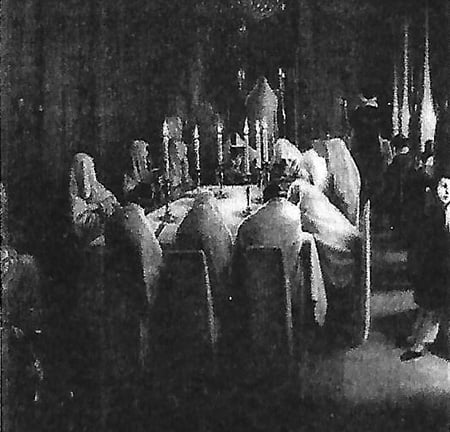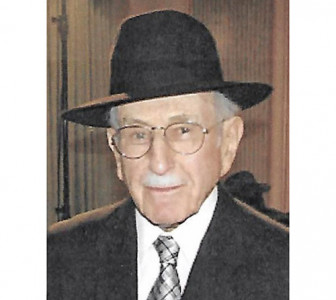

An acquaintance, who once visited in Washington Heights over Shabbat and came to Breuer’s on Friday night, commented to me that he had never seen a chazan work so hard. He was referring to Lechu Neranena and the subsequent paragraphs until Lecha Dodi. In most shuls the chazan starts and ends each paragraph with a few words aloud and the congregation says the paragraph silently. At Breuer’s, the chazan and the congregants say everything aloud, alternating sentence by sentence. No wonder this visitor thought the chazan was working very hard.
I could write many paragraphs from what I recollect (it has now been 42 years since I moved from there) but that would result in another story altogether.
I am not a person who likes to be regimented or be told step by step, action by action, what to do. But nevertheless I miss the proper decorum at Breuer’s, traditions brought over from Frankfurt on how a proper minyan should be conducted in shul, tradition for hundreds of years. Proper dress in shul is as important as knowing how make a correct hagba, as important as refraining from unnecessary talking. For example, no one at Breuer’s would ever dream of walking from one side of the shul to the other side via the platform containing the shulchan. There is a deep respect for the institution of a makom kadosh that unfortunately does not exist in many others shuls.
‘Why I Daven With the Yekkes’ (continued from last week)
He was, in many ways, the most European person I knew. He never quite came to terms with American informality, and I know he missed Europe, although the Germany he knew existed no more. The closest he could come to that was to visit England, where he had spent most of the war years working in a raincoat factory after being interned on the Isle of Man because of his German origins. But that formality had its limits, even for him. He once told me that when he was young, he was required to go every Shabbos afternoon to visit his stern grandmother, a former Prussian school teacher. Once there, he was expected to sit in absolute silence, motionless, with his hands exactly half on the table and half off, until the ordeal was over. He dreaded those visits. Once, when he was a just a little boy, she had him read out of the siddur. He stumbled over the words “v’tze-eh-tzo-ei-nu, v’tze-eh-tzo-ei,” and she pronounced her ironic verdict: “This boy will never learn how to read Hebrew!” To put it mildly, he never developed a fondness for her.
When he davened on Friday night, he always did the nusach exactly the same, note for note. I once asked him why. He told me the following story: When he was new as the chazan in Breuers, he went to four or five people who had grown up in Frankfurt and asked them how the nusach went. Each of them told him something slightly different. So, he wove them all together, and that is how he came to the nusach he used. “But why don’t you vary it? Why not do it one way one week, and then another way the next?” “Because then,” he replied, “people will not be able to learn how to daven!”
So, teaching others, being a model for correct davening, was one of his guiding principles as chazan.
Another time he told me that when he was first starting out, he was scheduled to daven on the 17th of Tamuz (one of the fast days). There was a specific tune for the pizmon said in the Selichos that was very difficult. He learned it, and repeated it over and over that night. But when the moment came, he just blanked out. So, he had to use some other tune. After davening, the rav of the shul at that time, who was a stickler for nusach, expressed his displeasure, mentioning in his halacha class that “a chazan who is not prepared should not go to the amud!”
“Wow. You must have been humiliated,” I said.
“I understood exactly why he did that. He needed to send a strong message that the davening must be done correctly. He was right,” Chazan Frankel replied. Chazan Frankel knew that the davening wasn’t about him. And of course, he became very close with the rav over the years. (“But,” he told me, with a twinkle in his eye, “I have never again served as chazan on the 17th of Tamuz!”)
(To be continued next week)
By Norbert Strauss
Norbert Strauss is a Teaneck resident and Englewood Hospital volunteer. He frequently speaks to groups to relay his family’s escape from Nazi Germany in 1941.













